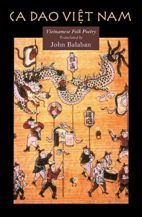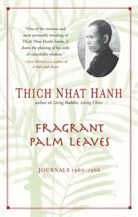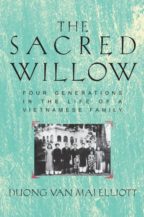Recommended Books
Grades 9-12 – Vietnam

Ca Dao Vietnam: Vietnamese Folk Poety (Kagean Book)
During the Vietnam war, John Balaban traveled the Vietnamese countryside alone, taping, transcribing, and translating oral folk poems known as “ca dao.” No one had ever done this before, and it was Balaban’s belief that his project would help end the war.
The young American poet walked up to farmers, fishermen, seamstresses, and monks and said, “Sing me your favorite poem,” and they did. “Folk poetry is so much a part of everybody’s life, my request didn’t seem like such a strange proposition,” Balaban writes.
The resulting collection—the first in any Western -language—became a phenomenon within the American Vietnamese community, but the book slipped out of print after the original publisher folded in the ’70s. This revised, bilingual edition includes new poems and an eloquent introduction explicating poetry’s importance in Vietnamese culture.
The Painting
The stream runs clear to its stones;
the fish swim in sharp outline.
Girl, turn your face for me to draw.
Tomorrow, if we should drift apart,
I shall find you by this picture.
“In early dynasties, Chinese emperors used to send out officials to record the poetry of the common people because folk songs were believed to be the truest indicators of popular feeling. . . . Consider this book such a sampling. Take it as a guide and enter this world of Taoist sages, parted lovers, melon gardens, concubines, exiled kings, wheeling egrets, rice paddies, bamboo bridges, shimmering moons, and fishtraps.”—from the introduction
“These oral poems are direct (though not beyond slyness), simple in language, poignant. . . . Recommended for all collections.”—Library Journal
John Balaban is the author of 11 books of poetry, prose, and Vietnamese translations. His Spring Essence: The Poetry of Hô Xuân Huong, has sold 20,000 copies. He lives in Raleigh, North Carolina, where he teaches at North Carolina State University.

Fragrant Palm Leaves: Journals, 1962-1966

The Sacred Willow: Four Generations in the Life of a Vietnamese Family
A finalist for the Pulitzer Prize, Duong Van Mai Elliott’s The Sacred Willow illuminates recent Vietnamese history by weaving together the stories of the lives of four generations of her family. Beginning with her great-grandfather, who rose from rural poverty to become an influential landowner, and continuing to the present, Mai Elliott traces her family’s journey through an era of tumultuous change. She tells us of childhood hours in her grandmother’s silk shop, and of hiding while French troops torched her village, watching while blossoms torn by fire from the trees flutter “like hundreds of butterflies” overhead. She makes clear the agonizing choices that split Vietnamese families: her eldest sister left her staunchly anti-communist home to join the Viet Minh, and spent months sleeping in jungle camps with her infant son, fearing air raids by day and tigers by night. And she follows several family members through the last, desperate hours of the fall of Saigon-including one nephew who tried to escape by grabbing the skid of a departing American helicopter. Based on family papers, dozens of interviews, and a wealth of other research, this is not only a memorable family saga but a record of how the Vietnamese themselves have experienced their times.
